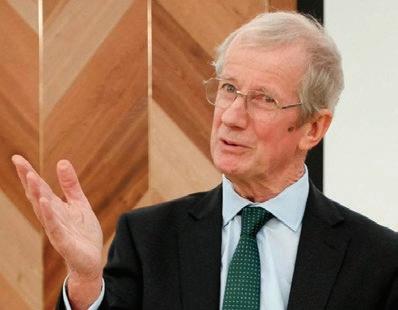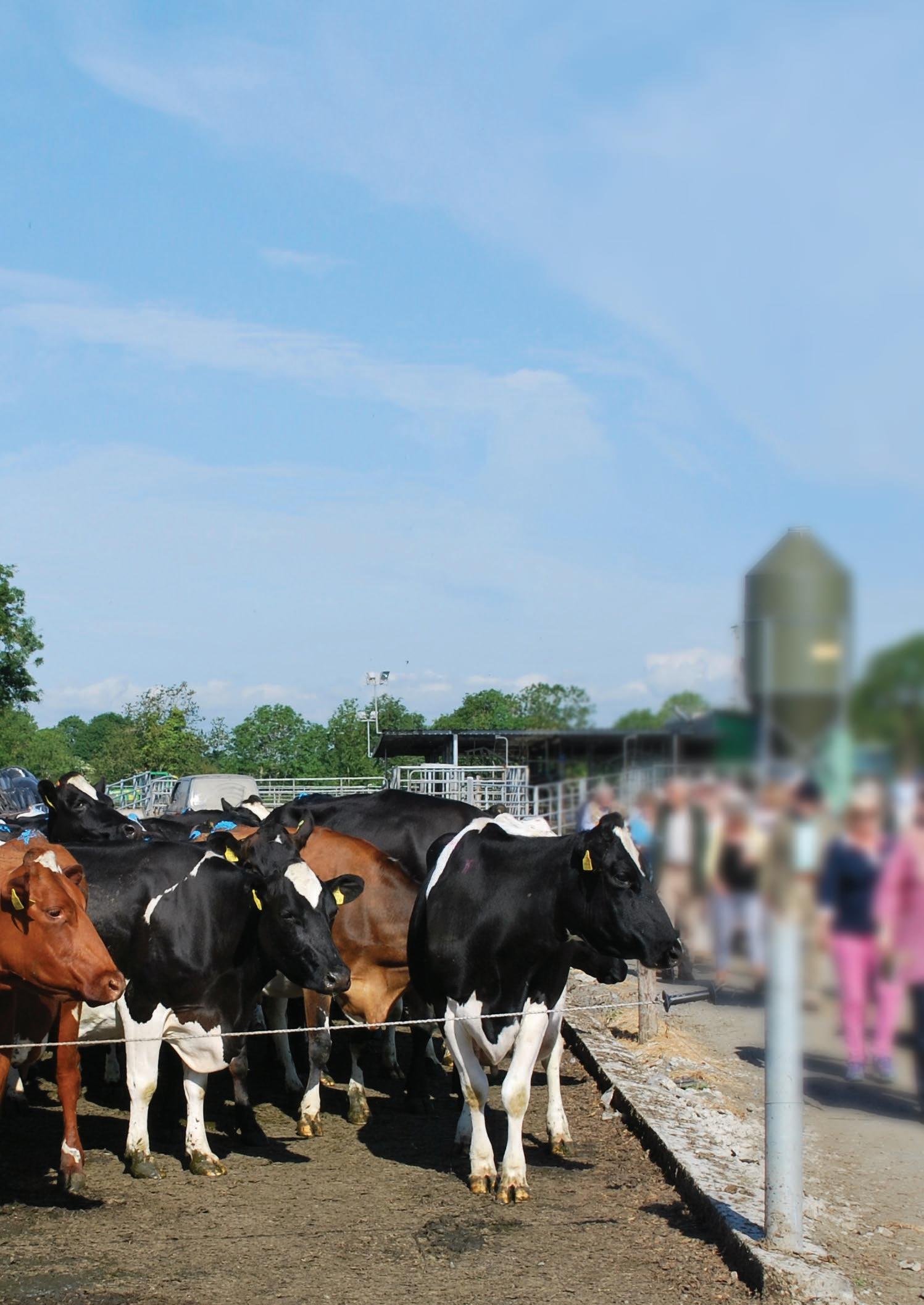
4 minute read
Farming’s healthier future
CHANGE is coming!
Farming is set to change irrevocably. But don’t expect a revolution. Charles Abel considers the main drivers identified in a major new report SMOKING took 30 years to be reined in. Salt intake the four stalking horses of intensive agriculture to
is only just being tackled. Pressure on sugar has barely cleared the starting block. So don’t expect what’s the
hit over-night. Trade issues, climate change, diet and environmental protection will transform UK farming – but gradually.
“There will be blood on the carpet and not a few tears,” predicts Allan Buckwell, Emeritus Professor at Imperial College, author of a major new report commissioned by the Worshipful Company of Farmers and launched to members of the Company in the Autumn by Master David Bolton.
Key drivers
Brexit impacts will be felt, with or without an EU trade deal (no deal as Farmers Club Journal went to press). But the inter-connected pressures of climate change, human health and environmental protection will have a far greater impact, albeit more gradual, noted Prof Buckwell.
Looking at recent expert reports including the Committee on Climate Change’s Land Use Policies for Net Zero UK, Dieter Helm’s Green and Prosperous Land, Prof Tim Lang’s Feeding Britain, the Royal Society of Arts Our future in the Land and Henry Dimbleby’s National Food Strategy (Part 1) he felt two key narratives were at play:
Plan A – the UK embraces new technologies to produce more food to feed a starving world and better meet domestic demand.
Plan B – the whole food system is broken and needs to transition to agroecology.
Paying farmers for Public Goods to deal with biodiversity issues under Plan A could combine with knowledge intensification, effectively applying more knowledge/hectare through precision farming, GPS, big data, artificial intelligence and robotics, plus new breeding techniques, and vertical production of some foods, plus insect, algal and cultured protein.
But that pays no attention to over-consumption and waste, insufficient attention to restoring climate stability and biodiversity, and is maybe over-optimistic about technology, he noted.
A strong lobby argues for Plan B, a transformational move to deintensification, with strong action on pollution, through regulation and taxes, and incentives for organic / agroecology / sustainable farming, effectively farming with natural processes, not against them, plus more stringent action on pesticide approvals.
The downside with Plan B is that it pays insufficient attention to economic and technical feasibility, and doesn’t deal with the challenges of higher food prices and welfare and trade questions, he said.
“My instincts are that we have to move towards the latter, but why would we turn our backs on technology, which aids resource efficiency?”
Tough on diet
Alongside this Government is determined to address dietary issues, as part of its response to climate change, biodiversity and environmental protection. “The over-consumption of calories, fats and protein, plus 20-30% food waste, just doesn’t stack up. If we consume less, we need to produce less, here or anywhere else.
“These are not trivial changes, they are accelerating existing trends, especially around the reduction in red meat and dairy in the diet. It sounds ghastly, and it is, but it’s not me saying it,” he insisted. “Everybody is saying it. We can’t go on eating ourselves into shorter lives; what’s the point of that?”
People may make their own decisions to eat a little less meat and dairy. But without strong Government action change can be incredibly slow. Organic farming shows that – after 50 years of publicity and promotion, it accounts for just 2.7% of land use and less than 1% of food spending.
With more people dying from bad diets than communicable diseases strong Government action is likely, especially as public acceptance grows. “The food industry is pressurised and acting on salt and sugar. Changes at that level can and will come about.”


Prophet of change – renowned economist Allan Buckwell, Emeritus Professor at Imperial College.
WCF REPORT
Full report at: www.
farmerslivery.org.uk
BREXIT PERSPECTIVES
Basic payments ending in 2027, and extreme pressure on public finances, mean farming will need to make a ‘very strong case’ to retain its current scale of support. Trade deals will be struck, in due course, with the US maybe the toughest, due to its greater reliance on food exports, Prof Buckwell said. Devolved UK farm policies would add to tensions, while progressive divergence from the EU on labour, social and technical issues, and food standards, would create increasing, not declining, trade friction and costs. As support payments are phased out the arithmetic of farming will change. “Doing it over seven years sounds humane, not a rush, but that change in domestic policy can not fail to bring a jolt to the sector, and when combined with other policy drivers I think we will look back in ten years and see that the trend lines changed. It will not be much fun for a lot of farm businesses.”










